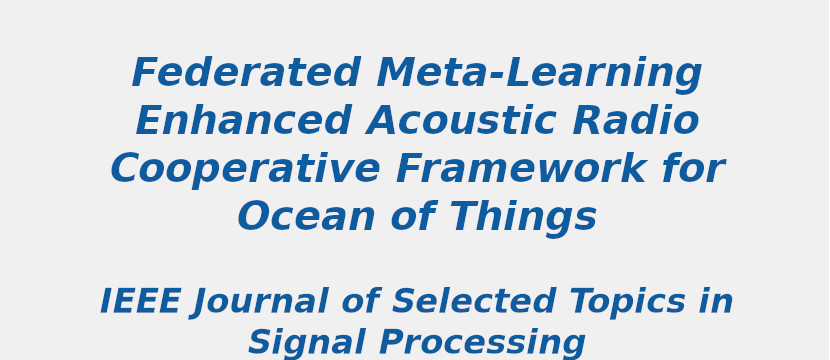Research Area: Machine Learning
Ocean of Things, consisting of multiple buoys distributed on the sea, is an acoustic radio cooperative wireless network that aims to acquire underwater information. In this paper, a deep neural network (DNN)-based receiver with data augmentation, termed chirp (C)-DNN, is developed for a buoy that uses chirp modulation-based underwater acoustic communications. To further solve the problem that the training data at a single buoy may not be sufficient, a federated meta-learning (FML) scheme is proposed to train the DNN-based receiver by exploiting the model parameters from multiple buoys. We analyze the convergence performance of FML and derive a closed-form expression for the convergence rate, accounting for the impacts of scheduling ratios, local epochs, and data volumes on a single node. Simulation results show that the proposed C-DNN receiver that is trained with sufficient data achieves better bit error rate performance and lower complexity than classical matched filter (MF)-based detectors. The proposed FML also outperforms the MF-based method after several communication rounds and achieves better generalization performance than federated learning based systems.
Keywords:
Receivers
Radio frequency
Chirp modulation
Convergence
Training
Chirp
Data models
Author(s) Name: Hao Zhao; Fei Ji; Qiang Li; Quansheng Guan
Journal name: IEEE Journal of Selected Topics in Signal Processing
Conferrence name:
Publisher name: IEEE
DOI: 10.1109/JSTSP.2022.3144020
Volume Information: Volume: 16
